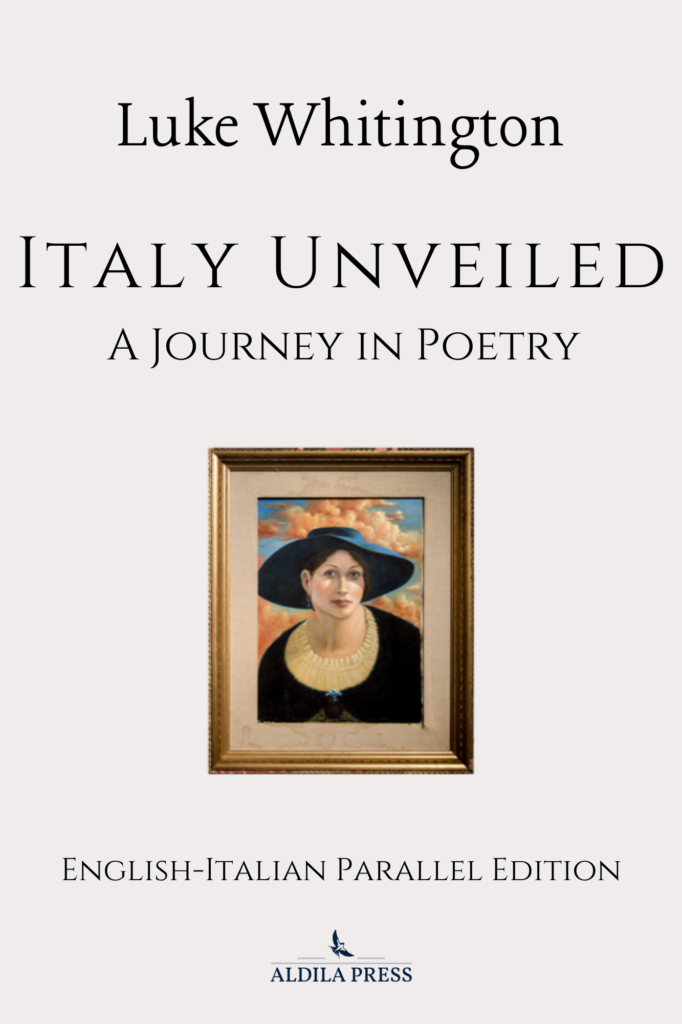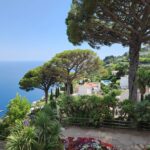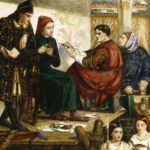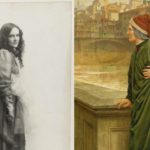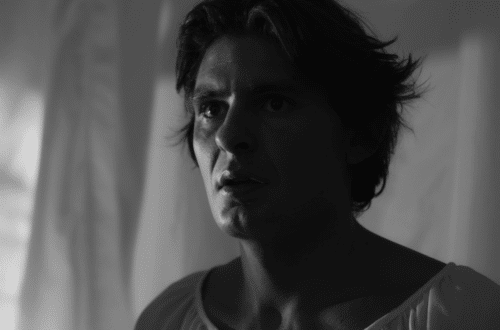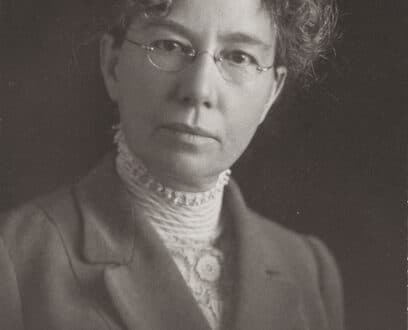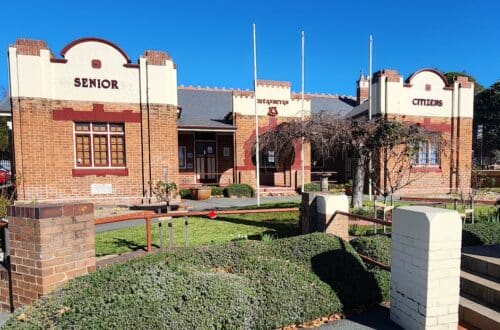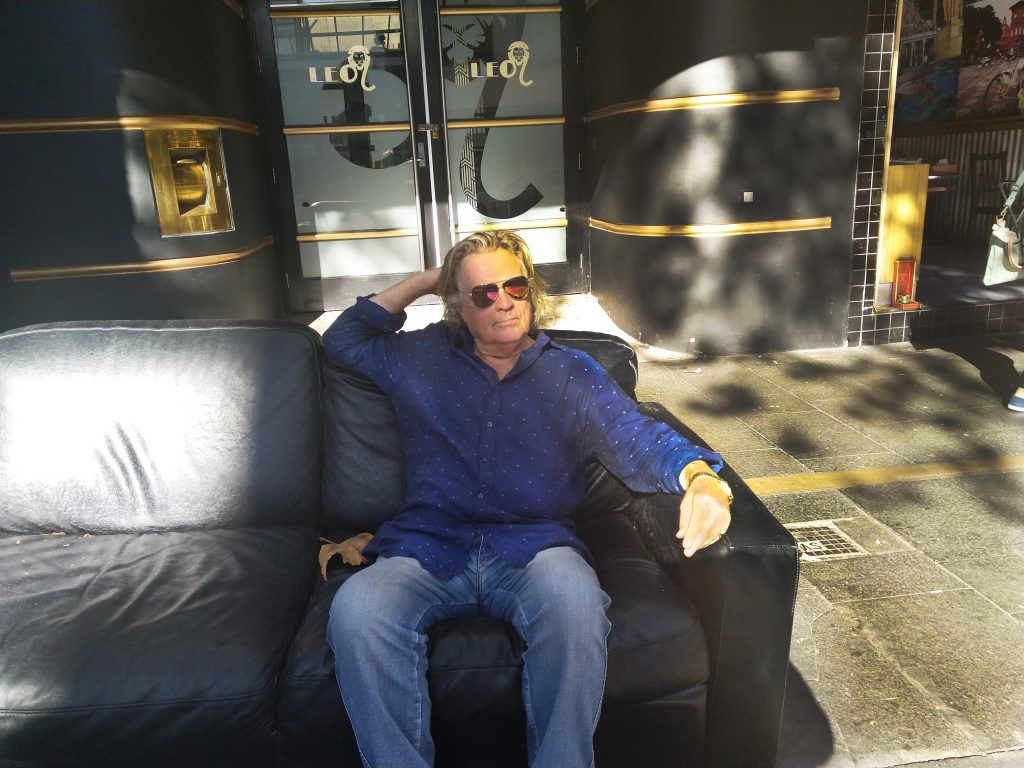
Luke Whitington: an Australian poet with an Italian heart
Luke Whitington lives in Sydney, but twenty years of his life were spent in Italy. Those years have left an indelible longing in his life which has been expressed in his extraordinary poetry which returns again and again to his experience of Italy. As a young man he chose a path less travelled: leaving a career in the Department of Foreign Affairs and Trade to undertake language studies at the University of Perugia in Umbria. His adventure continued to unfold as he became a successful entrepreneur. Working with Italian partners he restored heritage buildings in the countryside of Umbria. His journey was to take him to Ireland (where he began to write and continued his work on restoring heritage buildings). Eventually he returned to Australia, but Italy has never left his poetry.
As we read his verses, we discover an Italy full of life and love. Memories indelibly impressed in his being, echo in his poetry. He weaves the ordinary and the superlative of Italy into a beautiful tapestry. An unnamed love, sometimes central, sometimes in the margins of a verse, appears again and again. His poetry has been widely published, including in two volumes of poetry with over two hundred poems with Ginninderra Press. His writings have appeared in Australian press and has presented his poetry in Italy, Ireland, Australia and internationally. His biography is provided below. Luke’s poetry explores the Australian experience, as much as his connection with Italy. Ivan Head, reviewing his poem What Light Can Do, (the feature poem of his collection of the same name), observed:
What Light Can Do captures the intense overlap of places that can exist in one person, in the depths of one person who journeys from edge to centre and seeks to be in both places at once. It is as if two minds and imaginations run at the same time in one person, and are in some sense synthesised. That is the essence of the title poem. It is an answer to the question: where do I belong, and where is the real centre of my identity and my world?
Ivan Head, Light and Living Water: What Light Can Do New and Collected Poems by Luke Whitington, Quadrant May 2023, pp 88-91.
I came to know Luke, when another Australian writer, Theodore Ell, put us in touch. Luke was looking for a translator and Theodore reached out to me, thinking I might be interested. He was right. Although I usually translate from Italian into English, Luke’s poetry immediately resonated with me. In some senses our life journeys are very different, (for me the experience arises from being a migrant child in Australia), yet his longing for Italy was something that I found irresistible. We share a sense of exile, of needing to turn to Italy in thought, in memory; of needing to nurture that faraway yet intimate and indelible life experience. Italy’s swallows, symbols of migratory journeys of return, are a shared icon. We also share a primary experience of life in Australia. The connection is transnational.
Working with Luke on translating his poetry is a pleasure. He has given me permission to publish the poems below, together with my translations. The first is Crimson Uproar of Autumn in the Italian countryside. The second is Signoria focussing our attention on the built heritage of Italy in Florence. The third: The Swallows of Peter’s Square, is an intimate memory set in the heart of Italy. The fourth: Florence, the Eve of the Saints, takes us to a mid-winter Florence we might not expect in Italy. The fifth: Antipasto Orazio, captures an Italian culinary experience.
The poems speak for themselves.
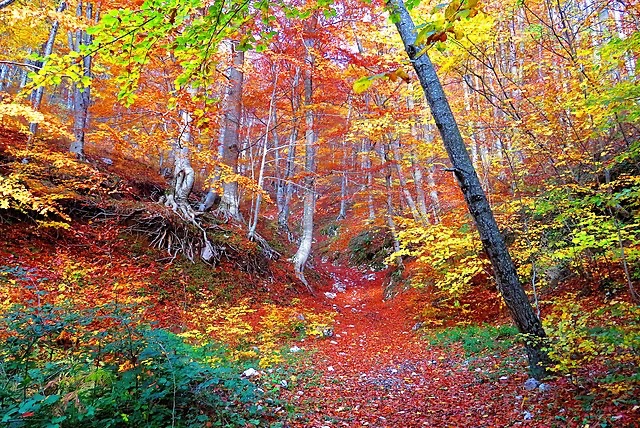
Crimson Uproar
Tumulto Cremisi
by Luke Whitington
Autumn once more
Old voices speak
Memory murmurs in whispers
With a slurring background
Of windblown leaves
Autunno di nuovo
Voce antiche parlano
Memorie sussurrano in mormorii
Con uno sfondo borbottato
Di foglie tirato dal vento
The pin oaks along the avenues
Blaze in remembrance
Riotous scarlet rises in fountains
Boughs and leaves flare
Lecci per viali
Roventi di memorie
Rosso sfrenato sorgente dalle fontane
Rami e foglie accese
A dying season’s fire toward the sky
Fuoco della stagione morente nel cielo
Laughter remembered in colours
Soundless outbursts
Flung in crimson uproar
As if each tree was an untamed poem
Come risate ricordate in colore
Frastuoni senza rumore
Lanciati in un tumulto cremisi
Come fosse ogni albero un poema indomito
Read by a friend somewhere
Silent poem after silent poem
Plumes like messages
From another element
Time uttering salutations
Letto da un’ amica altrove
Cantato in silenzio dopo silenzio
Piume come sussurri
Da un’altra realtà
Saluti proferendo ore
Proclamations, in wild bursts of verse
Colours sung from another dimension
Silence and redness hurled to the heavens
The air shudders with not one word.
Luke Whitington
Declamazioni, in scoppi ribelli
Colori cantati da un’altra dimensione
Silenzio e rossore buttati al cielo
L’aria stessa trema senza parola alcuna.
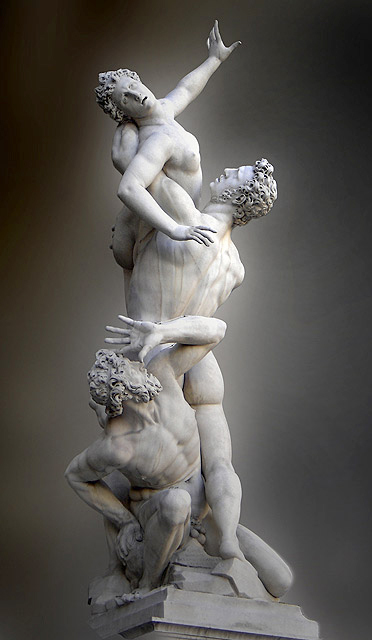
Signoria
by Luke Whitington
Piazza della Signoria; the square of the lords.
Piazza della Signoria; piazza dei signori
Giambologna’s rape of the Sabine women –
Much too beautiful — to introduce terror…
The launched symmetry, the woman
Ratto delle Sabine del Giambologna —
Di fuor’ misura bellezza — per raccontare tal terrore
Simmetria lanciata, una donna
Suspended effortlessly above two men
Like a turning threesome; a circling team
Of Immortals — leaping into historical basketball.
Sospesa, galleggiando al di sopra di due uomini
Un triangolo facendo piroetta; una squadra
Di immortali — balzando in una pallacanestro storica
A moment of nurtured stone, asserting
Marble is lighter than air, the sphere higher up
A figment of imagination, a resonance
Un attimo di pietra nutrita, sostenendo
Che il marmo è più leggero dell’aria,
Un frutto dell’immaginazione, una risonanza
You are meant to watch, later in recollection —
Sei chiamato a guardare, poi in ricordo —
While her buttocks balance on the thrust of
A perpendicular line of male sinews and muscles…
Le sue natiche sono bilanciate sulla spinta d’una
Linea perpendicolare di tendini e muscoli maschili …
Every time you cross the piazza, passing
The corner of the tower – rising stones like a prow
Cutting the light in half, you like to see
Ogni volta che traversi la piazza, che passi
L’angolo della torre — le pietre sorgendo come una prua
Spezzando la luce in due, ti piace vedere
The same pigeon there, using Cosimo Medici’s
Head as a lookout, a belvedere, the master
Of his steed and the Renaissance
Lì la solita colomba, sfruttando la testa di Cosimo de’ Medici
Come vantaggio, un belvedere, il Maestro
Del suo destriero e del Rinascimento
Wears his fringe of dried excrement, undistracted
Urging his horse further into the history of money and art.
And across in the shadows of the loggia
Porta una frangia d’escremento secco, noncurante
Incita il suo cavallo avanti per la storia del denaro e dell’arte
E dall’altra parta, nell’ombra della Loggia
The three figures continue to leap
Like a fountain of flesh in liberated, joyous stone —
Marble recurring in a fountain of ecstasy
Le tre figure balzano ancora
Come una fontana di pietra liberata e gioiosa
Il marmo ricorrente in una fontana d’estasi
Three leaps at a time in a pigeon’s wing beat of memory.
by Luke Whitington
Tre balzi in un’attimo, in un ricordo di battito d’ala
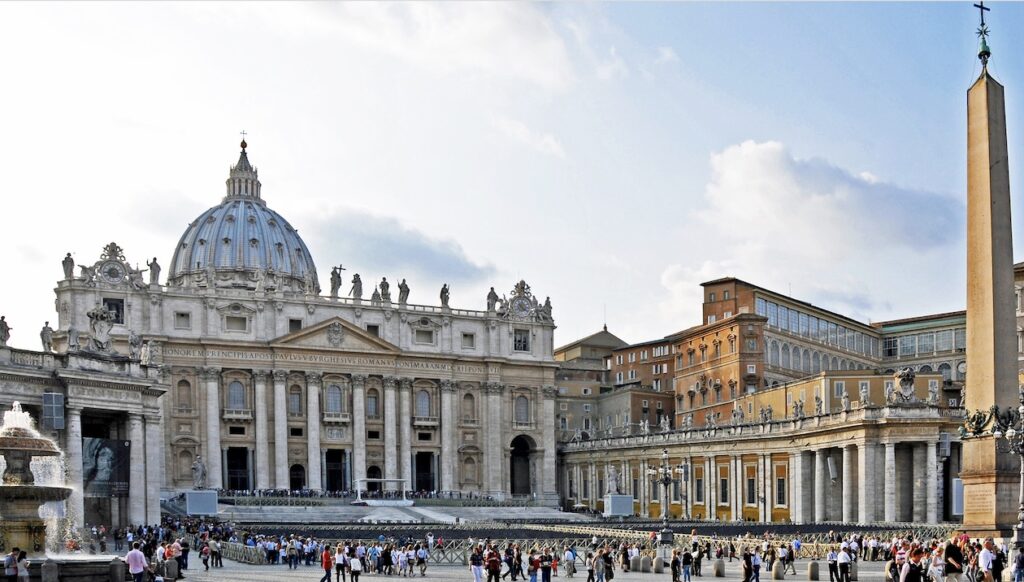
The Swallows in St Peter’s Square
Le rondini della Piazza San Pietro
The swallows refuse to assist
My eye’s dismissal, tip toeing in the air
Like those minnows, suspended in a stream
Le rondini rifiutano di aiutare
I miei occhi dimessi, facendo a punta di piedi nell’aria
Come quei pesciolini, sospesi nel ruscello
Of the moment, they hover then let go
And wheeling descend
to slowly rise again, no flying monk
Could pull and allow his bells to topple
Del momento, si librano poi si lanciano
E volteggiando discendono
Per lentamente salire di nuovo, nessun monaco volante
Potrebbe tirare e permettere alle sue campane di crollare
Roll over so eloquently,
as these unconscious ballerinas of the air.
Rotolando con sì tanta eloquenza,
Come queste ballerine inconsapevoli dell’aria
The priests that flow in pairs
from St Peters sway out across the square
And hardly lift their heads
toward these tiny pendulums of flight
They grip their rosaries
against the risk of an uncertain sky
I preti che fluiscono in coppie
via dal dominio di San Pietro fuori nella piazza
Ed a malapena alzano i loro capi
Verso questi pendoli minuscoli di volo
Impugnano i loro rosari
Contro i pericoli di un cielo incerto
And turn down the avenue in files;
fluttering rags of darkness
toward approaching night.
E girano giù dal corso in file;
Svolazzanti stracci di oscurità;
Verso l’arrivo della notte.
And as always I delay in this
apricot-smudged square of Rome
And love to watch this autumnal show,
the departure of the swallows
Signalled by their silent play,
my eyes a little saddened
E come sempre mi ritardo in questa
albicocca-macchiata piazza di Roma
Ed amo vedere questo spettacolo autunnale
la dipartita delle rondini
Segnalata dal loro giocoso silenzio
i miei occhi un po’ addolorati
Want their farewell to be over quickly,
my mind tucking away their salutations
But my heart tugs
against this dismissal, hypnotized
By this continual swinging rhythm,
a serenade to autumn
Vogliono che il loro addio passi subito,
la mia mente ricorrendo i loro saluti
Ma il mio cuore tira
Contro questa partenza, ipnotizzato
Da questo continuo ritmo oscillante
una serenata all’autunno
A flock of birds’ last ballet
in the changing rusts of light
Through a radiant gateway;
time threaded for the traveller’s eyes.
by Luke Whitington
L’ultima ballata d’uno stormo d’uccelli
Nelle ruggini di luce che cambiano
Tra un portale raggiante
Tempo filante per gli occhi del viaggiatore.
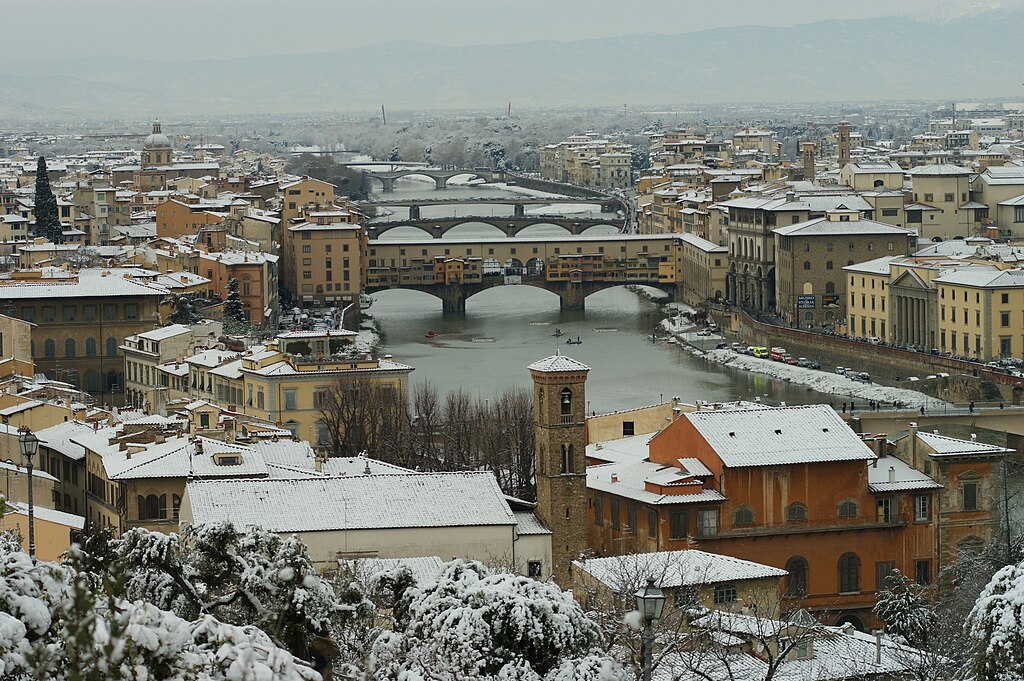
Florence, the eve of saints.
Firenze, Ognissanti
Cathedral of saints
An ornate cave
Of dim eternity’s, you came
To avoid the certainty
Cattedrale dei santi
Una grotta ornata
Di eternità offuscata, sei venuto
Per evitare la certezza
Of snow falling; down the long aisle
Candles flickering, burning in earnest
Ready to open pages of songs of time, old women
Who loved god for a lifetime,
share and remember
Della neve cadente; nella lunga navata
Candele tremolanti, fiammanti nel loro ardore
Pronto ad aprire pagine di canzoni del tempo, le vecchie
Che hanno amato Dio per una vita,
ricordano e condividono
The absence of their shuffling husbands.
Outside, now, snow is falling
Through hourglasses of arches
Flakes drifting like moments
Looking for somewhere to settle —
L’assenza dello scalpore dei loro mariti.
Fuori, adesso, la neve cade
Tra le clessidre degli archi
Fiocchi sventolanti come attimi
In cerca di qualche posto per appoggiarsi —
It could be in St Petersburg not Florence
The empty, haunted, lengthy piazza
And in the enduring silence a sudden gust of wind
Brings leaves, flocks of untranslatable messages
Tumbling past, missives from Dr Zhivago’s funeral
Potrebbe essere San Pietroburgo invece di Firenze
La piazza estesa, vuota, infestata di fantasmi
E nel silenzio infinito, una folata improvvisa di vento
Porta foglie, stormi di messaggi intraducibili
Che rotolano avanti, missive dal funerale di Dr Zhivago
Snow slowly camouflaging statues
Of poets, emperors and heroes
Morphing into interlopers
Kept in a waning, frozen outpost.
La neve poc’ a poco camuffa le statue
Di poeti, imperatori ed eroi
Trasformandoli in intrusi
Tenuti in un avamposto ghiacciato e calante
Above your head, the circling, gaunt and morose
Windows and doors, cancerous
White icing encrusting ochre
Tiles of towers and domes
Sopra la tua testa, lo sventolio, cupo e magro
Le finestre e le porte, cancerose
Il ghiaccio bianco copre le tegole
ocra delle torri e dei duomi
Or is it innocence
Tenderly cloaking the earth? –
I will not succumb to God’s
Everlasting patience
O sarebbe l’innocenza
Che copre teneramente la terra? —
Non mi sottometto
Alla pazienza eterna di Dio
Or dim uncertainties or
Dingy, poorly lit paintings
Saints varnished with centuries
Of prayer and candle vapour —
but instead will walk
Né a incertezze cupe o
Squallide, dipinti mal illuminati
Santi verniciati da secoli
Di preghiere e fumo di candele —
Invece prenderò una passeggiata
Under the streetlamps, glowing companions
Sentinels lined up along
wind-smoothed winding walls
Following the ancient silences
Of once-upon-a-time civilizations
Thoughts flitting before footfalls
Under naked winter branches
Dampness trickling down glistening walls
A mysterious, rumpled sky, arching eastward
Sotto i lampioni, amici incandescenti
Sentinelle a linee accostate
alle mura sinuose e lisciate dal vento
Seguirò il silenzio antico
Delle civiltà di una volta
I pensieri saltano avanti ai passi
Sotto ai rami nudi dell’inverno
Madido che gocciola giù dai muri luccicanti
Un cielo sgualcito, misterioso, che curva ad oriente
Proclaims — I do not
Proclama — Non sono
Do not have to tell you
Why you are here? — Or who you are? —
Comfortable knowing you are traceless
You pause to watch snowflakes like traces
Non sono obbligato a dirti
Perché sei qui? — O chi sei? —
Alla confortevole consapevolezza che sei senza traccia
Ti fermi per guardare i fiocchi come tracce
Or messages, drifting from pages of paradise;
Heaven fallen open, toward the earth.
O messaggi, sventolando dalle pagine di paradiso;
La porta di paradiso cade aperta verso la terra.
Luke Whitington.
Antipasto Orazio.
Antipasto Orazio.
Pick up the little loaf
And tear off the end of it —
I’ll pour the wine with a measuring hand
Let’s taste the crust and marrow, the freshness of today
Prendi il pannino
E rompine un pezzo dalla punta —
Verserò il vino con una mano giudiziosa
Dai, assaggiamo la crosta ed il midollo, la freschezza d’oggi.
Break it before you raise your glass with mine —
Ma rompilo, prima che alzi il tuo bicchiere con mio —
And let us toast a Roman poet
Who in all his doubt, always
Knew when and how to praise
E facciamo brindisi al poeta Romano
Che, con tutti suoi dubbi, sempre
Sapeva quando e come dare lodi
The virtue of the living moment –
First sipping it, then relishing it, until
It falls back to just below the rim. Now let’s pick
Up our forks and knives and begin
La virtù del vivere nell’adesso
Prima a piccoli sorsi, poi con gusto, fin quando
Cade indietro appena sotto il bordo. Ora prendiamo
Le forchette ei coltelli e cominciamo
To explore the assortment of flavours
The succulence and abundance
The languid sense of sublimity
In savouring what we are generously given.
Luke Whitington.
A scoprire questa collezione di sapori
Di succulenza e abbondanza
Il senso languido di sublimità
Nel gustare quello che generosamente ci vien’ dato.
Luke Whitington Bio
Luke Whitington resigned from the Dept of Foreign Affairs in his early twenties and left for Italy to undertake language studies there at the University of Perugia, Umbria. That year became 20 years of restoring old ruins in Umbria and Tuscany working with Italian partners to save heritage buildings; the oldest being the monastery of San Faustino near Gubbio. He then moved to Ireland where he restored the Norman castle Portlick on the shores of Lough Ree near Glasson in county Westmeath. During these years he wrote and published poetry with Irish media in Dublin and the Irish Centre for Poetry Studies at Dublin University including anthologies edited by Patrick Healey. In Italy he published with the Sigh Press in Florence and did readings of his work with the Florence opera singer Sarina Rausa at the Rominelli Studios in Florence. On return to Australia to manage his family farm Luke published two collections of poetry of over two hundred poems with Ginninderra Press, SA. Luke has been published in several anthologies edited by Geoff Page, Mark Redinnick and David Musgrave. He has been published in journals such as Overland, the Fairfax Media, Five Bells, Contrappasso, Quadrant, the Canberra Times and student journals in Sydney and Canberra. His early work is held in the Buffalo State Library in New York in the Jonathan Williams Collection. In Sydney his poetry has been sung at the State Library by the Pacific Opera Group, under the direction of Mark Tredinnick.
Images
Photo of Luke Whitington (supplied). Photo Credit: Andrew Woodhouse.
Fall in Irpinia Southern Italy By Gianfranco Vitolo – Imported from 500px (archived version) by the Archive Team. (detail page), CC BY 3.0, https://commons.wikimedia.org/w/index.php?curid=71345869
Rape of the Sabines by Giambologna, By Ricardo André Frantz (User:Tetraktys) – taken by Ricardo André Frantz, CC BY-SA 3.0, https://commons.wikimedia.org/w/index.php?curid=2253936
St Peter’s Square by Dennis Jarvis https://www.flickr.com/photos/archer10/5115399433 CC BY-SA 2.0 DEED Attribution-ShareAlike 2.0 Generic
Florence under Snow by Alberto Lavacchi, CC BY-SA 3.0 https://creativecommons.org/licenses/by-sa/3.0, via Wikimedia Commons


